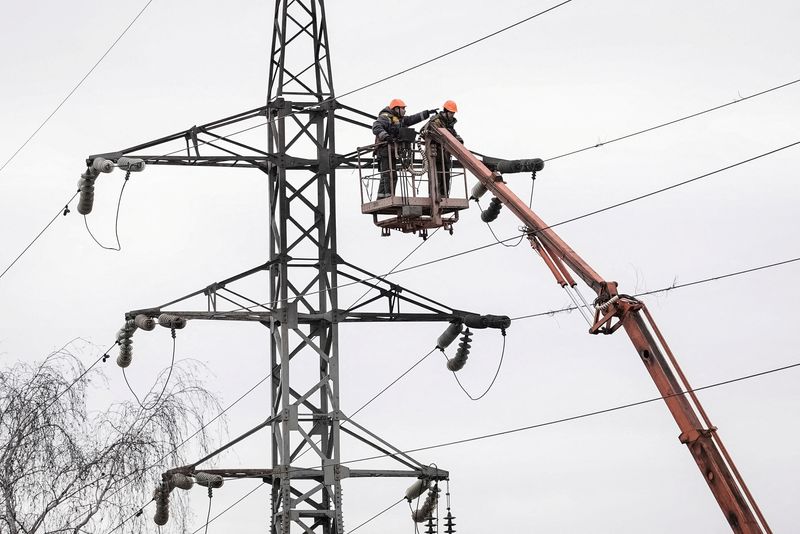
By Max Hunder
KYIV (Reuters) – Russia’s campaign of air strikes on Ukraine’s energy grid probably violates international humanitarian law, a U.N. monitoring body said on Thursday, as Ukrainians prepare for the toughest winter since Russia’s invasion.
Over the course of its invasion, Russia has fired hundreds of missiles and drones at Ukrainian electricity generation, transmission and distribution facilities.
The first big wave of strikes hit in the autumn and winter of 2022, a few months after Russia began its full-scale invasion of Ukraine. The strikes have continued throughout the war, though Moscow has markedly stepped up its campaign since March.
Each wave of strikes has left Ukrainian cities without power for hours at a time for weeks on end.
The U.N. Human Rights Monitoring Mission in Ukraine (HRMMU) focused its report on nine waves of strikes between March and August 2024.
“There are reasonable grounds to believe that multiple aspects of the military campaign to damage or destroy Ukraine’s civilian electricity and heat-producing and transmission infrastructure have violated foundational principles of international humanitarian law,” the report said.
HRMMU said it had visited seven power plants that were damaged or destroyed by attacks, as well as 28 communities affected by the strikes.
Kyiv says the targeting of its energy system is a war crime, and the International Criminal court has issued arrest warrants for four Russian officials and military officers for the bombing of civilian power infrastructure.
Moscow says power infrastructure is a legitimate military targets and has dismissed the charges against its officials as irrelevant.
RISKS
The HRMMU said the attacks posed risks to Ukraine’s water supply, to sewage and sanitation, to the provision of heating and hot water, to public health, to education and to the wider economy.
It highlighted a particular problem in urban areas, where most homes are linked up to centralised heating and hot water systems.
The report said that nearly 95% of Kyiv’s residents relied on centralised basement heating systems whose output requires electric pumps to reach the upper floors of the building.
“Without emergency electricity supply, millions of urban residents could be left without heat,” it said.

HRMMU cited experts as saying that Ukrainians should expect power outages of between four and 18 hours a day this winter.
The report also said that during the summer period of 2024, energy-related issues were the second most common reason that Ukrainians gave for fleeing the country.
This post is originally published on INVESTING.





